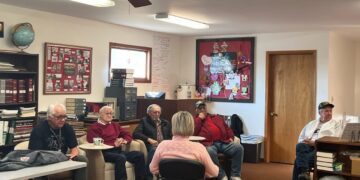Kyle Sammin of The Federalist doesn't think Donald Trump's trade changes and tariff plans will effectively and quickly change the jobs' climate in the Midwest, despite the president-elect raising expectations for new life in the manufacturing sector.
The way to boost jobs in the Midwest, Sammins writes, is to "Drain the Swamp" by moving federal government jobs out of the D.C. vicinity … federal agency jobs is the key, he says in this piece:
But even if tariffs on China and other developing world countries do stimulate manufacturing job growth in the United States, the effects will not be immediate. If Trump wants to increase employment in the states he took from the Democratic column in 2016, there are other ways to do so. Most times, when a President says he created jobs, what he means is that jobs were created while he occupied the White House. Maybe he worked with Congress to make conditions more favorable for job creation, but more often he is just the beneficiary of worldwide economic trends.
The exception to this is in the creation of jobs through actually hiring people to work for the federal government. Here a President can actually affect the number and, more importantly, the location of the jobs the federal government provides. The best way for Trump to enact a better federal employment program that is fiscally conservative enough to satisfy a Republican Congress, therefore, is not to create more federal jobs but to move existing ones away from the Washington area and out into the rest of the country, especially in those areas that have been hurt most by long-term unemployment.
I first wrote about this idea a year ago, when Jeb Bush or Ted Cruz looked more likely to win the Presidency than Donald Trump. The idea of spreading federal jobs across the country fits even better with Trump’s “Drain the Swamp” theme than with any of the other candidates. Trump is not a creature of Washington. The biggest theme in his election was a conflict between the ins and the outs, or as Peggy Noonan called them, the “protected” and the “unprotected.” Many of the residents of Washington and its suburbs feel protected by their secure and steady federal employment and have a sense of safety that is unknown among the residents of cities and towns that have seen factories and mines close down one after the other for decades. Trump could give them a greater sense of security by giving them access to those same federal jobs.
Can hear the huge, collective gasp from D.C. real estate agents about now, can't you?
What do you think? Is Sammin's proposal the answer?







